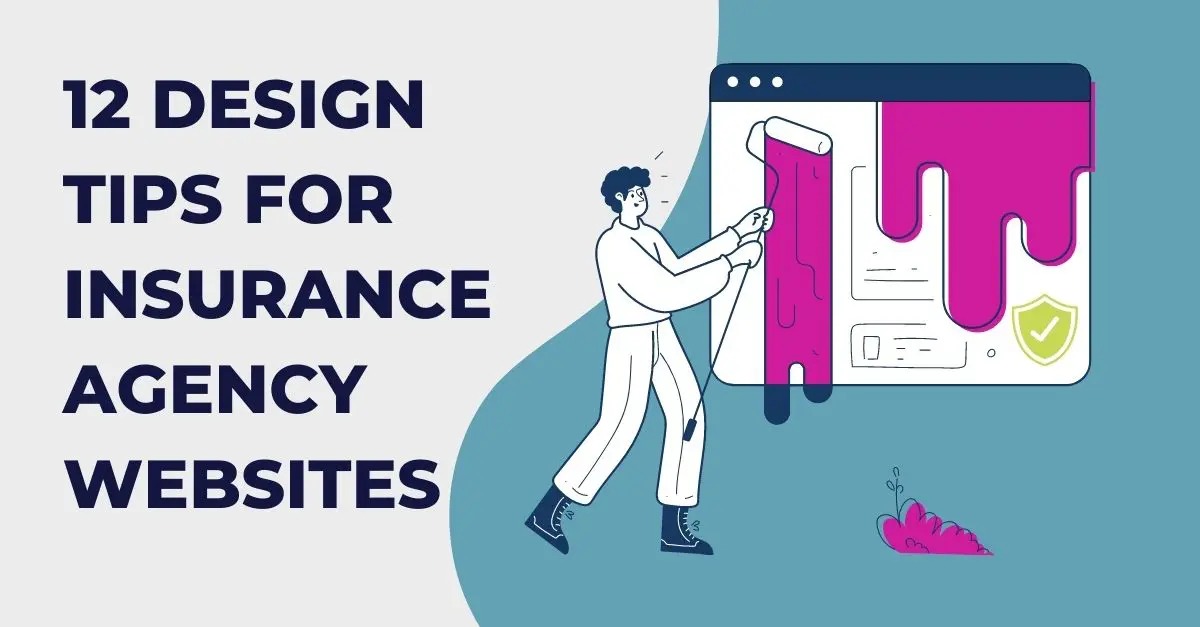

Finance
How To Own An Insurance Agency
Published: November 19, 2023
Learn how to own an insurance agency and make your mark in the finance industry. Get expert tips and advice on starting and running a successful insurance business.
(Many of the links in this article redirect to a specific reviewed product. Your purchase of these products through affiliate links helps to generate commission for LiveWell, at no extra cost. Learn more)
Table of Contents
- Introduction
- Step 1: Understand the Insurance Industry
- Step 2: Determine Your Niche
- Step 3: Obtain the Necessary Licenses and Certifications
- Step 4: Develop a Business Plan
- Step 5: Secure Funding and Insurance Carrier Appointments
- Step 6: Set Up Your Agency’s Infrastructure
- Step 7: Recruit and Train Staff
- Step 8: Market and Promote Your Agency
- Step 9: Provide Excellent Customer Service
- Step 10: Stay Informed and Adapt to Changes in the Industry
- Conclusion
Introduction
Welcome to the world of insurance agency ownership! Owning an insurance agency can be an exciting and rewarding venture, providing you with the opportunity to help individuals and businesses protect their assets and manage risks. Whether you are just starting your career in the insurance industry or looking to transition from an agent to an agency owner, this comprehensive guide will walk you through the essential steps to owning your own insurance agency.
Running an insurance agency requires a unique blend of industry knowledge, business acumen, and exceptional customer service skills. It’s crucial to understand the intricacies of the insurance industry, identify your niche market, obtain the necessary licenses and certifications, develop a solid business plan, and effectively market your agency to attract clients.
In this guide, we will break down the process into ten essential steps to help you navigate the path to agency ownership successfully. By following these steps and implementing sound business strategies, you can establish and grow a thriving insurance agency that not only meets the needs of your clients but also provides you with financial stability and professional fulfillment.
It’s essential to note that starting an insurance agency requires commitment, dedication, and hard work. It may take time to build a client base and establish your agency’s reputation in the market. However, with the right approach and a long-term vision, you can achieve your goal of owning a successful insurance agency.
Are you ready to embark on this exciting journey? Let’s dive into the first step – understanding the insurance industry – and begin laying the foundation for your agency’s success.
Step 1: Understand the Insurance Industry
Before venturing into owning an insurance agency, it is crucial to have a thorough understanding of the insurance industry. Insurance is a complex field that encompasses various types of coverage, policies, regulations, and market dynamics. Educating yourself about the industry will not only help you in providing the best services to your clients but also in positioning your agency strategically in the market.
Start by familiarizing yourself with the different types of insurance, such as auto, home, life, health, and business insurance. Each type has its own set of risks, coverage options, and regulations. Understanding the nuances of each insurance type will enable you to cater to a wide range of client needs.
Furthermore, staying updated with the latest trends and developments in the insurance industry is essential. Emerging technologies, changes in regulations, and shifts in consumer behavior can directly impact your agency’s operations and opportunities. Subscribe to industry publications, join professional networks, and participate in relevant conferences and webinars to stay informed.
Additionally, gaining a deep understanding of the target market is crucial. Identify the demographics, preferences, and needs of your potential clients. This will help you tailor your services and marketing strategies to attract and retain clients effectively.
Networking with experienced insurance professionals can also provide valuable insights and guidance. Connecting with industry veterans, attending industry events, and joining professional associations can open doors to mentorship opportunities and valuable connections in the field.
Lastly, familiarize yourself with the legal and regulatory requirements for insurance agencies in your region. Each jurisdiction may have specific licensing, bonding, and compliance requirements that need to be met before launching your agency. Understanding these regulations will ensure that you operate within the legal framework and maintain the necessary credentials.
Taking the time to thoroughly understand the insurance industry will help you make informed decisions throughout your journey as an insurance agency owner. It will equip you with the knowledge and expertise needed to navigate the market, provide exceptional services to your clients, and position your agency for long-term success.
Step 2: Determine Your Niche
Once you have a solid understanding of the insurance industry, the next step in owning an insurance agency is to determine your niche. While it may be tempting to try to cater to a broad range of insurance needs, specializing in a specific market segment can give your agency a competitive edge and help you establish a strong presence.
Start by evaluating your interests, skills, and experiences. Identify areas where you have a natural inclination or expertise. This could be anything from commercial property insurance to life insurance for families or health insurance for self-employed individuals.
Consider conducting market research to identify untapped or underserved market segments. Look for gaps in the insurance offerings within your area or target demographic groups that may have specific insurance needs that are currently not being met.
It is also essential to analyze the competition in your chosen market segment. Consider the existing insurance agencies that specialize in the same niche and evaluate their strengths and weaknesses. This will help you determine how you can differentiate your agency and offer unique value propositions to your potential clients.
Remember that choosing a niche does not mean excluding other types of insurance. You can still offer a variety of insurance products while having a specialization that sets you apart. By focusing on a specific niche, you can develop a deeper understanding of your target market’s needs, build expertise in that area, and develop strong relationships with insurance carriers that cater to your niche.
Identifying your niche is not a one-time decision. As the market evolves and client needs change, you must continuously assess and adapt your niche strategy. Stay attuned to emerging trends and evolving customer preferences to adjust your offerings and ensure that you remain relevant in the market.
By determining your niche, you can position your agency as an expert in a particular area of insurance, build a reputation for providing specialized services, and attract clients who are seeking tailored insurance solutions. This strategic focus will set the stage for long-term success and growth as an insurance agency owner.
Step 3: Obtain the Necessary Licenses and Certifications
Before you can start operating as an insurance agency owner, it is vital to obtain the necessary licenses and certifications required by your jurisdiction. Insurance licensing requirements vary by region, so it is important to research and understand the specific requirements for your area.
Begin by identifying the type of insurance agency you plan to operate. Different types of insurance, such as property and casualty, life and health, or both, may require distinct licenses. Determine the specific licenses you need to legally sell and advise clients on insurance policies.
Once you have identified the necessary licenses, you will need to complete the required training and education. This often includes pre-licensing courses, which cover topics such as insurance fundamentals, policy types, ethics, and applicable laws and regulations. After completing the coursework, you may need to pass a licensing exam administered by the regulatory authority in your jurisdiction.
In addition to the agency license, you may also need to obtain individual licenses for yourself and your staff members. Some roles within the agency, such as agents or brokers, may require specific certifications or designations. These certifications can demonstrate your expertise and commitment to your clients and may include certifications like Certified Insurance Counselor (CIC) or Certified Risk Manager (CRM).
It is crucial to stay updated and compliant with ongoing continuing education requirements. Many jurisdictions require insurance professionals to complete a certain number of continuing education credits each year to maintain their licenses or certifications. These courses help you stay informed about the latest industry developments and advancements, ensuring you provide the best possible service to your clients.
Licensing and certification requirements are designed to protect consumers and ensure that insurance professionals have the knowledge and skills to provide accurate and reliable advice. By obtaining the necessary licenses and certifications, you demonstrate your commitment to professionalism and ethical conduct in the insurance industry.
Remember to research and familiarize yourself with any additional licensing requirements unique to your region. Consulting with a local regulatory agency or seeking guidance from industry associations can help ensure that you meet all legal obligations.
By completing the necessary licensing and certification requirements, you will position yourself as a qualified professional ready to serve clients and build credibility in the insurance industry.
Step 4: Develop a Business Plan
A well-crafted business plan is an essential tool for any insurance agency owner. It serves as a roadmap, outlining your agency’s goals, strategies, and financial projections. Developing a comprehensive business plan will not only help you clarify your vision but also attract investors and guide your decision-making process as you establish and grow your agency.
Start by defining your agency’s mission and vision. Clearly articulate the purpose and values that will guide your agency’s operations. This will serve as the foundation for your business plan and provide a sense of direction throughout the lifespan of your agency.
Next, conduct a thorough analysis of the market and competitive landscape. Identify your target market and define the unique value proposition that sets your agency apart from competitors. Consider the strengths, weaknesses, opportunities, and threats (SWOT analysis) for your agency to gain insights into the market dynamics and potential challenges.
Develop a marketing and sales strategy that outlines how you will reach and attract clients. Identify the most effective marketing channels, such as digital advertising, social media, networking events, or partnerships with local businesses. Determine how you will build brand awareness and generate leads to grow your customer base.
Financial planning is a critical aspect of your business plan. Calculate the startup costs, including licensing fees, office space, technology, and marketing expenses. Create a realistic budget that incorporates both fixed and variable costs. Develop revenue projections based on an analysis of your target market and pricing strategies. Consider consulting with financial professionals to ensure accuracy and sound financial planning.
Outline your agency’s organizational structure and staffing needs. Define the roles and responsibilities for each team member and outline your recruitment and training plan. Establish a company culture that fosters collaboration, professionalism, and client-centricity.
Finally, set measurable goals and key performance indicators (KPIs) to track the progress and success of your agency. Regularly review and update your business plan to adapt to changing market conditions and refine your strategies accordingly.
A well-developed business plan not only helps you gain a clear understanding of your agency’s direction but also serves as a valuable tool when seeking funding or attracting potential partners or investors. It provides a roadmap for success and acts as a reference point for decision-making as you build and grow your insurance agency.
Step 5: Secure Funding and Insurance Carrier Appointments
Securing adequate funding is essential to cover startup costs and initial operational expenses for your insurance agency. Additionally, establishing relationships with insurance carriers is crucial to offer a wide range of insurance products to your clients. In this step, we will explore how to secure funding and obtain insurance carrier appointments to set your agency up for success.
Start by calculating the total startup costs for your agency, including office space, technology, licensing fees, marketing expenses, and staffing. Determine how much capital you need to launch your agency and cover initial operational expenses until you start generating revenue. You can approach various funding sources such as personal savings, bank loans, venture capitalists, or even crowdfunding platforms. Explore different options and choose the one that aligns best with your business goals and financial situation.
Once you have secured funding, the next step is to obtain appointments with insurance carriers. Insurance carriers are the companies that underwrite and provide insurance policies. Building relationships with reputable carriers is essential to offer a diverse range of insurance solutions to your clients.
Research and identify insurance carriers that align with your agency’s niche and target market. Consider factors such as carrier reputation, product offerings, commission rates, and support services. Reach out to these carriers and inquire about their appointment process.
Some carriers may have specific requirements, such as a minimum experience level, a certain volume of business, or additional certifications. Ensure that you meet these requirements before applying for an appointment. Submit the necessary paperwork and documentation, including your agency’s business plan, licensing information, and proof of financial stability.
Building relationships with insurance carriers goes beyond just securing appointments. Maintain open lines of communication and attend carrier events and trainings to stay updated on their products, industry trends, and any changes in underwriting guidelines or policy offerings.
Remember that establishing partnerships with reputable carriers helps build credibility for your agency and instills confidence in your clients. Offering a diverse range of insurance products and access to reputable carriers enhances the value you can provide to your clients, setting you apart from competitors.
Securing funding and obtaining insurance carrier appointments are critical steps in establishing a strong foundation for your insurance agency. By ensuring financial stability and offering a comprehensive suite of insurance products, you position your agency for growth and success in the competitive insurance market.
Step 6: Set Up Your Agency’s Infrastructure
Setting up a solid infrastructure is crucial for the smooth operation and growth of your insurance agency. This step involves establishing the necessary systems, processes, and technologies to support your agency’s operations and maximize efficiency.
Start by securing a suitable office space that meets your agency’s needs. Consider factors such as location, size, accessibility, and cost. Your office space should provide a professional and welcoming environment for both staff and clients.
Next, invest in the right technology and software systems to streamline your agency’s operations. Utilize agency management systems that can help you manage client information, policies, and claims efficiently. Implement customer relationship management (CRM) software to track client interactions and manage leads effectively. Additionally, consider adopting digital tools for document management, online collaboration, and secure communication.
Establish clear and efficient workflows to ensure smooth communication and collaboration among your team members. Define the processes for onboarding new clients, managing policy renewals, and handling claims. Clearly document these procedures and provide training to your staff to ensure consistency and quality in service delivery.
Implement solid data security measures to protect sensitive client information. Invest in reliable cybersecurity systems, encryption software, and regular data backup protocols. Ensure compliance with relevant data protection regulations to build trust with your clients.
Consider establishing strategic partnerships and affiliations with other professionals who can complement your services. These partnerships can include attorneys, accountants, or financial advisors who can provide additional expertise and resources to enhance the value you offer to your clients.
Set up a comprehensive insurance agency website that showcases your services, expertise, and unique value proposition. Your website should be visually appealing, mobile-friendly, and optimized for search engines. Include information about your team, testimonials from satisfied clients, and clear calls-to-action for visitors to contact you.
Finally, establish a positive and inclusive company culture within your agency. Foster a supportive and collaborative environment that encourages growth, innovation, and continuous learning. Recognize and reward your staff’s achievements to maintain employee satisfaction and motivation.
By setting up a robust infrastructure for your agency, you create a strong foundation for success. A well-equipped and efficient agency can provide superior service to clients, attract and retain talented professionals, and position your agency as a trusted and reliable insurance provider.
Step 7: Recruit and Train Staff
As an insurance agency owner, one of your most valuable assets is your team. Building a skilled and knowledgeable staff is essential for providing exceptional service to your clients and supporting the growth of your agency. In this step, we will explore the process of recruiting and training staff for your insurance agency.
Start by identifying the key roles and positions required to operate your agency effectively. This may include agents, customer service representatives, underwriters, claim adjusters, and administrative staff. Determine the skills, qualifications, and experience necessary for each role.
Utilize multiple channels to attract a diverse pool of candidates. Advertise job openings on online job boards, professional networking sites, and industry-specific platforms. Leverage your connections and ask for referrals from colleagues and industry professionals. Networking events, career fairs, and local college campuses can also be sources for potential hires.
During the recruitment process, carefully review resumes, conduct interviews, and assess candidates’ skills and cultural fit with your agency. Consider using behavioral-based interview questions to assess candidates’ problem-solving abilities, communication skills, and client-focused mindset.
Once you have hired the right candidates, invest time and resources in training and development. Develop a comprehensive onboarding program that familiarizes new hires with your agency’s culture, policies, and procedures. Provide product training, customer service training, and software training to ensure that your staff is adequately equipped to serve clients effectively.
Continual learning and professional development are vital for your staff’s growth and the success of your agency. Encourage and support ongoing training opportunities, such as industry conferences, webinars, and certifications. By investing in their professional development, you empower your staff to continually enhance their knowledge and skills in the rapidly evolving insurance industry.
Foster a positive and collaborative work environment that promotes teamwork and open communication. Conduct regular staff meetings, encourage idea-sharing, and provide regular feedback to help your team members grow and thrive.
Recognize and reward exceptional performance to motivate and retain your staff. Implement incentive programs, performance-based bonuses, or employee recognition initiatives to show your appreciation and encourage a high level of performance.
Remember that selecting and nurturing the right talent is an ongoing process. Regularly assess your staffing needs and make adjustments as necessary. By assembling a capable and committed team, you create a strong foundation for your insurance agency’s success.
Step 8: Market and Promote Your Agency
Effective marketing and promotion are essential for creating awareness, attracting clients, and establishing your insurance agency in the competitive market. In this step, we will explore strategies to market and promote your agency effectively.
Start by defining your target market and understanding their needs, preferences, and pain points. This will help you tailor your marketing efforts and craft targeted messages that resonate with your potential clients.
Develop a compelling brand identity that reflects your agency’s values and unique value proposition. Create a memorable logo, design professional marketing materials, and establish consistent branding across all customer touchpoints, including your website, social media profiles, and printed collateral.
Utilize digital marketing channels to expand your reach and engage with your target audience. Develop a user-friendly website that provides valuable information about your services, expertise, and contact information. Optimize your website for search engines to improve its visibility in organic search results.
Establish a presence on social media platforms that align with your target market. Share educational content, industry insights, and engaging stories to build trust and credibility. Engage with your audience by responding to comments and messages promptly.
Consider utilizing paid advertising strategies, such as pay-per-click (PPC) campaigns on search engines or social media platforms, to increase your agency’s visibility and reach. Set a clear budget, define your target audience, and monitor the performance of your campaigns to optimize their effectiveness.
Networking is a powerful way to build relationships and generate referrals. Attend industry events, join professional organizations, and actively participate in local business networking groups. Build strong connections with other professionals, such as real estate agents, mortgage brokers, or financial advisors, who can refer clients to your agency.
Build a strong online reputation by actively soliciting and managing client feedback and testimonials. Encourage satisfied clients to leave reviews on online platforms such as Google My Business or industry-specific review sites. Positive reviews and testimonials can greatly influence potential clients’ decision-making process.
Consider hosting educational webinars, workshops, or seminars to position yourself as an industry expert and attract potential clients. Share valuable insights and information about insurance topics relevant to your target market.
Lastly, remember the power of word-of-mouth referrals. Provide exceptional service to your clients, go above and beyond their expectations, and consistently deliver on your promises. Satisfied clients are more likely to refer their friends, family, and colleagues to your agency.
Marketing and promoting your agency is an ongoing effort. Regularly evaluate the effectiveness of your marketing strategies and adjust your approach based on the results. By implementing a well-rounded marketing plan, you can effectively connect with your target audience, build brand awareness, and attract clients to your insurance agency.
Step 9: Provide Excellent Customer Service
Providing excellent customer service is crucial for the long-term success and growth of your insurance agency. Satisfied clients are more likely to renew policies, refer others to your agency, and become loyal advocates for your brand. In this step, we will explore strategies to deliver exceptional customer service and foster strong relationships with your clients.
First and foremost, prioritize responsiveness and timely communication. Promptly respond to client inquiries, whether it’s through phone calls, emails, or social media messages. Show your clients that their needs and concerns are a top priority and that you are dedicated to providing them with exceptional service.
Establish clear and transparent communication channels. Clearly explain policy terms, coverage options, and any exclusions or limitations. Avoid using technical jargon and instead, provide clear and easily understandable explanations to ensure your clients fully understand their insurance policies.
Regularly review existing policies with your clients to ensure their coverage aligns with their changing needs. Suggest appropriate updates or enhancements to their policies based on changes in their circumstances or industry trends. Taking a proactive approach to policy management demonstrates your commitment to their long-term protection.
Personalize interactions by remembering important details about your clients. Using their preferred name, acknowledging special occasions like birthdays or anniversaries, and demonstrating genuine interest in their specific needs can help foster stronger connections and build trust.
Offer value-added services beyond just policy sales. Educate your clients about risk management strategies, provide tips for saving on insurance premiums, or share informative content through newsletters or blog articles. Position yourself as a trusted advisor, not just a salesperson, by offering valuable insights and guidance.
Handle claims efficiently and empathetically. Guide your clients through the claims process, assisting them at every step. Keep them informed about the progress of their claims, ensure timely resolution, and provide support during what can sometimes be a stressful time. A positive claims experience can significantly impact the overall perception of your agency.
Implement a customer feedback system to gather insights and identify areas for improvement. Encourage clients to share their experiences and actively listen to their feedback. Address any concerns promptly and take proactive steps to enhance the client experience based on their suggestions.
Invest in staff training to enhance their customer service skills. Equip your team members with the knowledge and tools they need to deliver exceptional service. Provide ongoing training on insurance products, industry updates, and customer service best practices.
Aim for continuous improvement by monitoring and measuring customer satisfaction. Regularly assess your agency’s performance against key metrics such as client retention rates, customer reviews, and referral rates. Analyze the feedback and data to identify areas where you can further enhance your customer service efforts.
Remember that your clients are the lifeblood of your insurance agency. By consistently providing excellent customer service, you not only retain happy clients but also cultivate a reputation for exceptional service that can attract new clients and drive growth for your agency.
Step 10: Stay Informed and Adapt to Changes in the Industry
The insurance industry is constantly evolving, with new technologies, regulations, and market trends shaping the landscape. To maintain a competitive edge and ensure the long-term success of your insurance agency, staying informed and adapting to industry changes is crucial. In Step 10, we will explore strategies to stay updated and adaptable in the ever-changing insurance industry.
Make continuous learning a priority. Attend industry conferences, seminars, and webinars to stay informed about the latest developments, emerging trends, and regulatory changes. Engage in professional development by pursuing additional certifications or designations relevant to your niche area.
Engage with industry associations and networks. Join relevant professional organizations in the insurance field to connect with peers, learn from each other’s experiences, and stay up to date with best practices. Participate actively in industry forums, discussion boards, and networking events to exchange knowledge and ideas.
Keep a finger on the pulse of market trends and customer preferences. Regularly conduct market research to identify changing client needs, emerging risks, and new opportunities. Stay updated on the latest technologies, such as insurtech innovations or digital platforms, that can enhance your agency’s efficiency and improve customer experience.
Stay aware of regulatory changes and compliance requirements. Monitor industry publications, government communication channels, and regulatory agency updates to ensure your agency operates within the legal framework. Implement processes to adapt quickly to changing regulations and ensure compliance.
Establish relationships with carriers and underwriters who can provide updates on changes in policy offerings, underwriting guidelines, or risk assessment criteria. Regularly communicate with your carrier partners to stay informed about new products, competitive insights, and industry trends.
Cultivate a culture of innovation within your agency. Encourage your team members to identify new solutions, explore emerging technologies, and embrace change. Foster a mindset of continuous improvement and adaptability to navigate the evolving industry landscape.
Leverage technology to stay ahead. Embrace digital tools and software that can enhance your agency’s efficiency, automate processes, and improve client interactions. Invest in user-friendly agency management systems, customer relationship management (CRM) software, and data analytics tools to gain valuable insights and make informed business decisions.
Collect feedback from clients and analyze their changing needs. Regularly interact with your clients to understand their evolving expectations and tailor your services accordingly. Set up feedback mechanisms, conduct surveys, and closely monitor client satisfaction levels to proactively address any issues.
Embrace a culture of continuous improvement and adaptability. Encourage your team to embrace change, learn from setbacks, and seize new opportunities. Foster an environment that values openness, creativity, and a willingness to embrace innovative approaches.
By staying informed and adapting to changes in the insurance industry, you position your agency for long-term success. Proactively staying ahead of industry shifts, embracing emerging trends, and remaining responsive to client needs will ensure that your agency remains competitive and relevant in the evolving marketplace.
Conclusion
Congratulations on completing the ten essential steps to owning your own insurance agency! You have embarked on an exciting journey that requires dedication, industry knowledge, and a commitment to providing exceptional service to your clients.
By understanding the insurance industry, determining your niche, obtaining the necessary licenses and certifications, developing a business plan, securing funding and insurance carrier appointments, setting up your agency’s infrastructure, recruiting and training staff, marketing and promoting your agency, providing excellent customer service, and staying informed and adaptable to industry changes, you have laid a strong foundation for your agency’s success.
Remember, owning an insurance agency is not just about selling policies. It’s about building relationships, earning trust, and protecting the dreams and assets of your clients. Your agency has the power to make a meaningful impact in people’s lives by providing peace of mind and financial security.
As you navigate your journey as an insurance agency owner, keep learning, evolving, and adapting to the ever-changing industry landscape. Stay connected with industry peers, stay knowledgeable about market trends, and always put your clients’ best interests at the forefront.
By constantly striving for excellence in customer service, investing in your team’s growth, and embracing innovation, you can differentiate your agency and position yourself as a trusted advisor in the competitive insurance market.
Remember, building a successful insurance agency takes time, effort, and perseverance. Stay committed to your vision and goals, and continue to refine and adapt your strategies based on market dynamics and client needs.
Best of luck on your journey as an insurance agency owner. With dedication, passion, and a focus on providing excellent service, you have the potential to build a thriving agency and make a positive difference in people’s lives.














